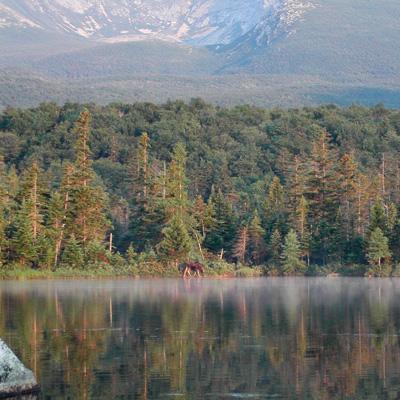Synthesis of Climate Change Research in the Northeastern U.S. and Eastern Canada

The climate of northeastern North America has changed markedly over the past 100 years and computer models for the region forecast more change to come. Policymakers, land managers, citizens, and scientists must grapple with what this change means for the future of the region and its forests. NSRC researchers synthesized the consequences of this climate change for forested ecosystems of the northeastern United States and eastern Canada.
"Changing Climate, Changing Forests" represents a cross-disciplinary synthesis undertaken by a coalition of over 50 U.S. and Canadian scientists. The Northeast study region spans seven states of the northeastern United States and five provinces of eastern Canada. The report traces observed and projected shifts in temperature and precipitation and links them to a web of structural, biogeochemical, and wildlife shifts occurring throughout the region's forests.
Results from this synthesis show conclusively that the climate of the region has changed over the past century, and computer models suggest that it will continue to change in the decades to come. Projections suggest that there will be a significant decline in suitable habitat for spruce-fir forests and an expansion in suitable habitat for oak-dominated forests. Changes in climate, hydrology, and forest species composition will have a cascade of effects on forest biogeochemistry, wildlife, and the presence and virulence of pests, pathogens, and invasive species. With the accumulating evidence of climate change and its potential effects, forest stewardship efforts would benefit from integrating climate mitigation and adaptation options in conservation and management plans.
